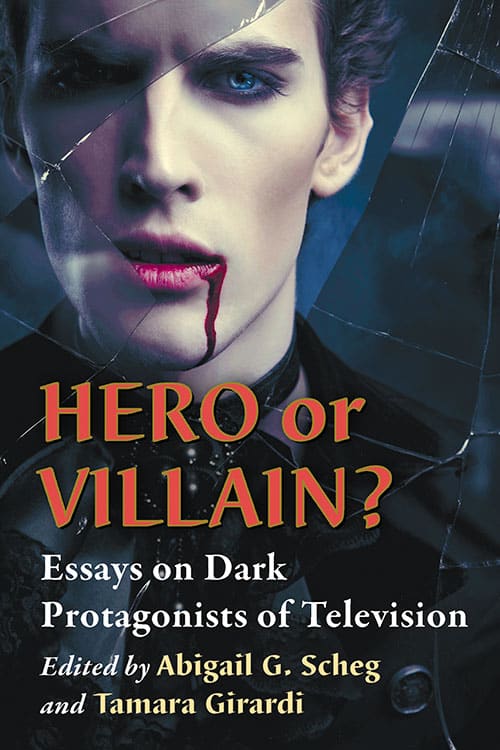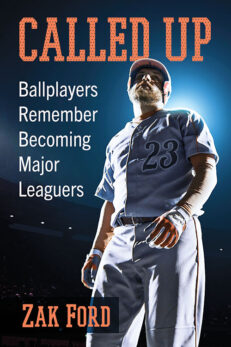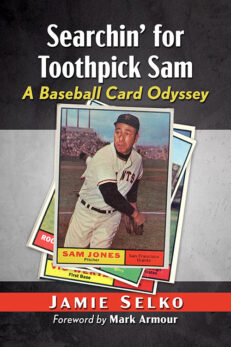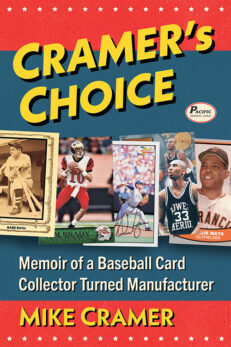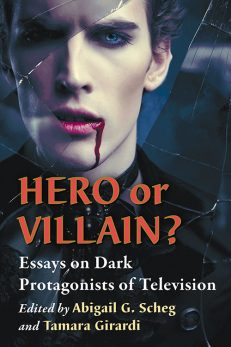Hero or Villain?
Essays on Dark Protagonists of Television
$29.95
In stock
About the Book
One dimensional television characters are a thing of the past—today’s popular shows feature intricate storylines and well-developed characters. From the brooding Damon Salvatore in The Vampire Diaries to the tough-minded Rick Grimes in The Walking Dead, protagonists are not categorically good, antagonists often have relatable good sides, and heroes may act as antiheroes from one episode to the next. This collection of new essays examines the complex characters in Orange Is the New Black, Homeland, Key & Peele, Oz, Empire, Breaking Bad, House, and Buffy the Vampire Slayer.
About the Author(s)
Bibliographic Details
Edited by Abigail G. Scheg and Tamara Girardi
Format: softcover (6 x 9)
Pages: 220
Bibliographic Info: 9 photos, notes, bibliographies, index
Copyright Date: 2017
pISBN: 978-1-4766-6769-0
eISBN: 978-1-4766-3052-6
Imprint: McFarland
Table of Contents
Introduction (Abigail G. Scheg and Tamara Girardi) 1
Bad Cops and Good Inmates: Shifting Power Structures in Prison Dramas Oz and Orange Is the New Black (Stephanie Lim) 7
Harrison Wells and the Making of Identities: The Scientist, the Father and the Family in the Cosmic Battle of Good and Evil in The Flash (Hannah Swamidoss) 22
Bad Men: The Fan Culture and Postmasculinity of Breaking Bad (Jack Clarke) 33
Breaking It Down: Expressing Black Selfhood and Subverting Binaries of Good and Bad in Key & Peele (Hilarie Ashton) 48
Talk Bluntly and Carry a Pointy Stick: Violence and Verbal Complexity in Buffy the Vampire Slayer (Tirza I. Leader and Darcy Mullen) 60
“I need an antiheroine”: Female Antiheroes in American Quality Television (Sotiris Petridis) 74
A Dangerous Mind: An Examination of the Effectiveness of Walter White as Educator (Richard L. Mehrenberg) 84
Building (an) Empire: Queer Sacrifices in Lee Daniels’ Empire (Robert LaRue) 96
Merlin: Magician, Man and Manipulator in Camelot (Caroline Womack) 109
“This isn’t a democracy anymore”: The Walking Dead’s Rick Grimes and the Post-Apocalyptic Good Cop/Bad Cop (Annette Schimmelpfennig) 123
“The girl needs a little monster in her man”: Heroes and Villains in the Works of Joss Whedon (Don Tresca) 136
The Detective, the Pastor and the Thief: Backstrom’s Negotiations of Morality (Alissa Burger) 149
Building and Breaking an Antihero: The Rise of Sonny Corinthos (Jacinta Yanders) 162
You Can’t Go Home Again: The Multiple Heroisms of Sergeant Nicholas Brody (Lloyd Isaac Vayo) 174
Good Bad Boys and the Women Who Love Them: Romantic Triangulation and the Ideal of Conformist Assimilation in The Vampire Diaries and True Blood (Ana G. Gal) 186
Deconstructing the Dichotomy That Is House, M.D.: A Carnivalesque Look at a Good Diagnostician/Bad Guy (Gillian Collie) 198
About the Contributors 211
Index 213

